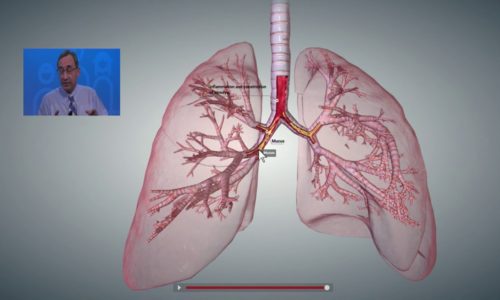What is the best way to treat a common cold? |

Historical accounts of cures for the common cold abound. An 18th century cookbook offered the following recipe for making tablets for treating colds: “Take pearls, crab’s-eyes, red coral, white amber, burnt hartshorn, and oriental bezoar, of each half an ounce; the black tips of crabs-claws three ounces; make all into a paste, with a jelly of vipers, and roll it into little balls, which dry and keep for use.” Not only is it doubtful that this concoction was effective, the cruel reality is that even today, medical science has not been successful in developing a cure for the common cold. There are,
however, measures that you can take that may help in shortening the duration of a cold or make cold symptoms less miserable.
In general, treatment of colds is directed at one or more of its main symptoms, which include nasal congestion, runny nose, cough, sore throat, and muscle aches. With an almost overwhelming number of products available on an over-the-counter (OTC) basis, here’s a rundown on some of the most common classes of medicines used to treat cold symptoms:
- Decongestants—Decongestants, available as both OTC and prescription products, are primarily taken to relieve nasal congestion or runny nose. In general, there is no benefit to the prescription type over the kind that you can buy without a prescription. Decongestants work by reducing swelling in the nasal passages, which relieves the feeling of pressure and improves airflow through your nose. Sudafed PE is an example of an OTC decongestant that only contains a decongestant (phenylephrine). Many “multi-system” cold medicines include a decongestant along with medicines designed to treat other cold symptoms. Decongestants are also available as a nasal spray or nose drops (Sinex, Afrin, others). The use of these should be limited to a few days, however, to avoid a problem known as “rebound congestion”.
- Antihistamines—Although not generally as effective as decongestants for nasal congestion, some people find that some of the older types of antihistamines, e.g. brompheniramine and chlorpheniramine, may help relieve sneezing as well as a runny nose from a cold. These medications work by blocking the release of histamine that is produced in response to allergens or irritants. Dimetane, Chlor-Trimeton, and Benadryl all contain these older, more sedating antihistamines. There are also a number of products available that include both an antihistamine and a decongestant. These include Allegra-D, Benadryl Allergy Plus Sinus, Claritin-D, and Zyrtec-D.
- Cough suppressants/expectorants—The two most common classes of medicine used in treating a cold-related cough are expectorants and suppressants. These two medications do very different things. Cough suppressants work by blocking the cough reflex in the brain, whereas, expectorants thin mucous so that it is more easily expressed from the lungs. Dextromethorphan (DM) is the active ingredient in many OTC cough suppressants. When you see DM at the end of a medication name, e.g. Bromtuss-DM, AccuHist-DM, Donatussin-DM, etc., it most likely contains dextromethorphan. DM is structurally related to codeine but does not have the same addictive potential. Guaifenesin is the generic name for the most common expectorant in OTC medicines. Mucinex® and Tussin® and trade names for two of these expectorants. For reasons that may relate more to marketing that to treatment, cough suppressants and expectorants are sometimes combined in the same product (Mucinex-DM, Robitussin Cough + Chest Congestion DM, Q-Tussin DM, others).
- Analgesics/Antipyretics—In treating colds, analgesics are used to treat muscle aches or pain and antipyretics are used to reduce fever. Both acetaminophen (Tylenol, Panadol, others) and ibuprofen (Motrin, Advil, others) are effective in reducing fever or relieving pain. If taking one of these products as a single agent, it is important to remember that many “multi-system” cold medicines may contain acetaminophen or ibuprofen, so be careful to avoid taking too much.
When buying a cold medication, many of the products that you will see advertise themselves as being effective for several different cold symptoms. These medicines can simplify treatment, but depending on your symptoms, you may be taking one or more drugs that you don’t really need. Also, by taking a combination medication, you may be more likely to develop an unexpected side effect or cause an interaction with another medication that you are taking.
A variety of “home remedies” are also effective for treating colds. For many people, saline nose drops or nasal irrigation with saline solution works just as well as decongestant tablets. Likewise, salt water gargle (once each hour with 1 tsp. (5 g) of salt dissolved in 8 fl. oz. of warm water) is a time honored treatment for sore throat. There is even some evidence that chicken soup may actually provide some therapeutic benefits in someone with a cold. In children younger than two years of age, most cold medications should not be used at all due to the likelihood of developing side effects.
It should be noted that antibiotics have no role in treating the common cold unless a secondary bacterial infection, like pneumonia, develops. This is a relatively uncommon situation, however, more likely to occur in someone whose immune system is suppressed, such as someone with diabetes or taking chemotherapy. In the great majority of people, the body will combat the cold virus with resolution of symptoms in a week or so.
If you have any more questions just Ask Hanna, our health advisors are here to help.
Image: ©Shutterstock / YAKOBCHUK VIACHESLAV








